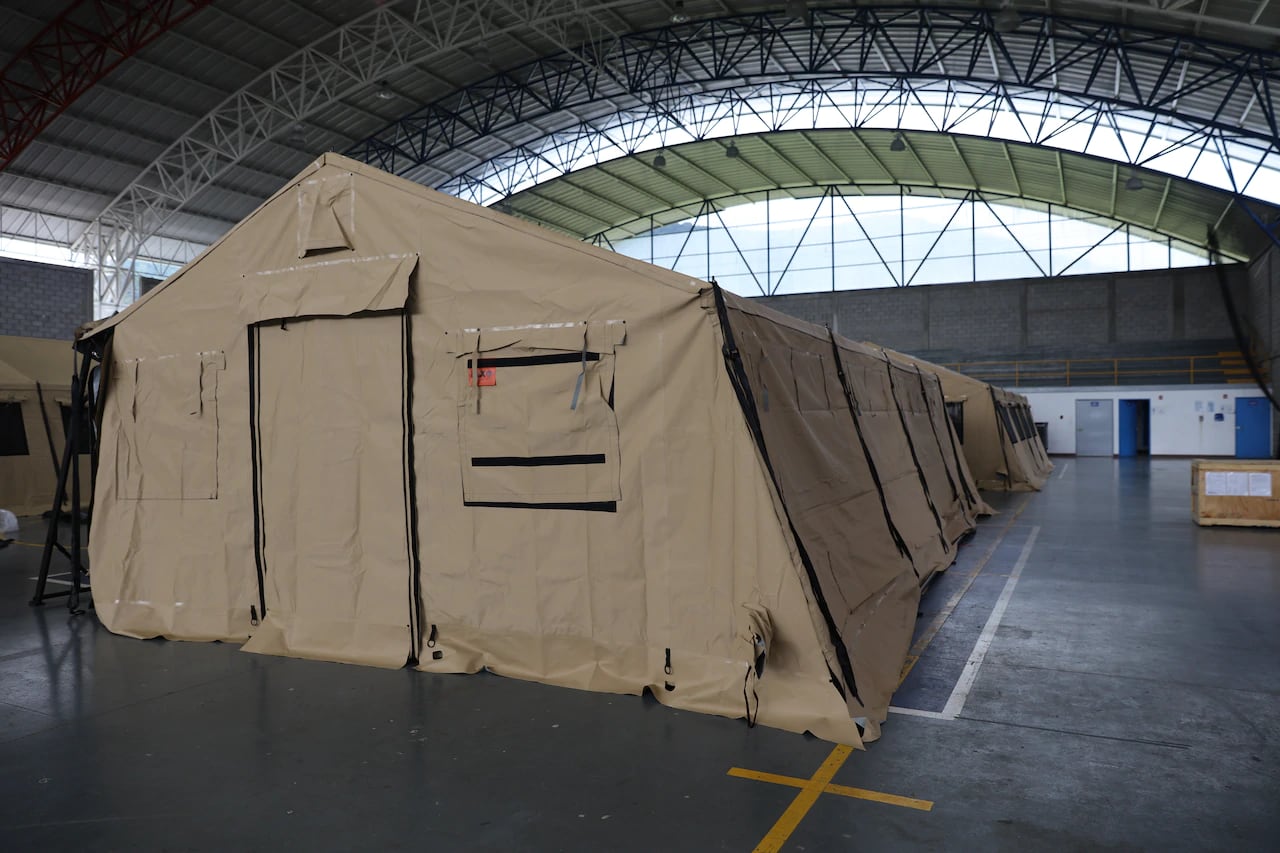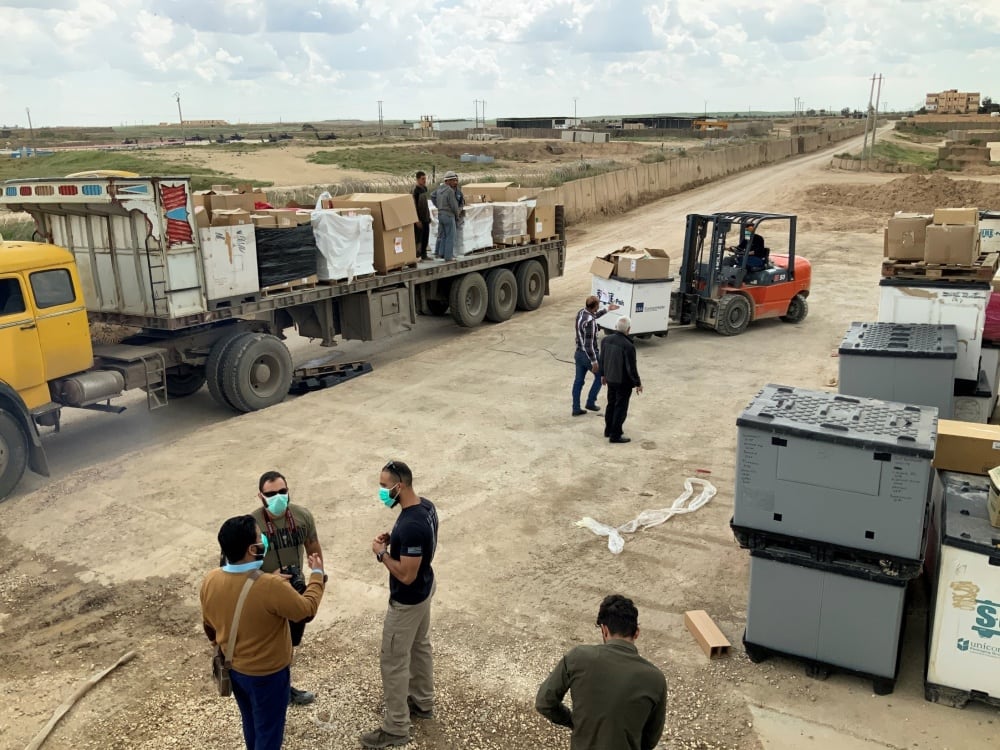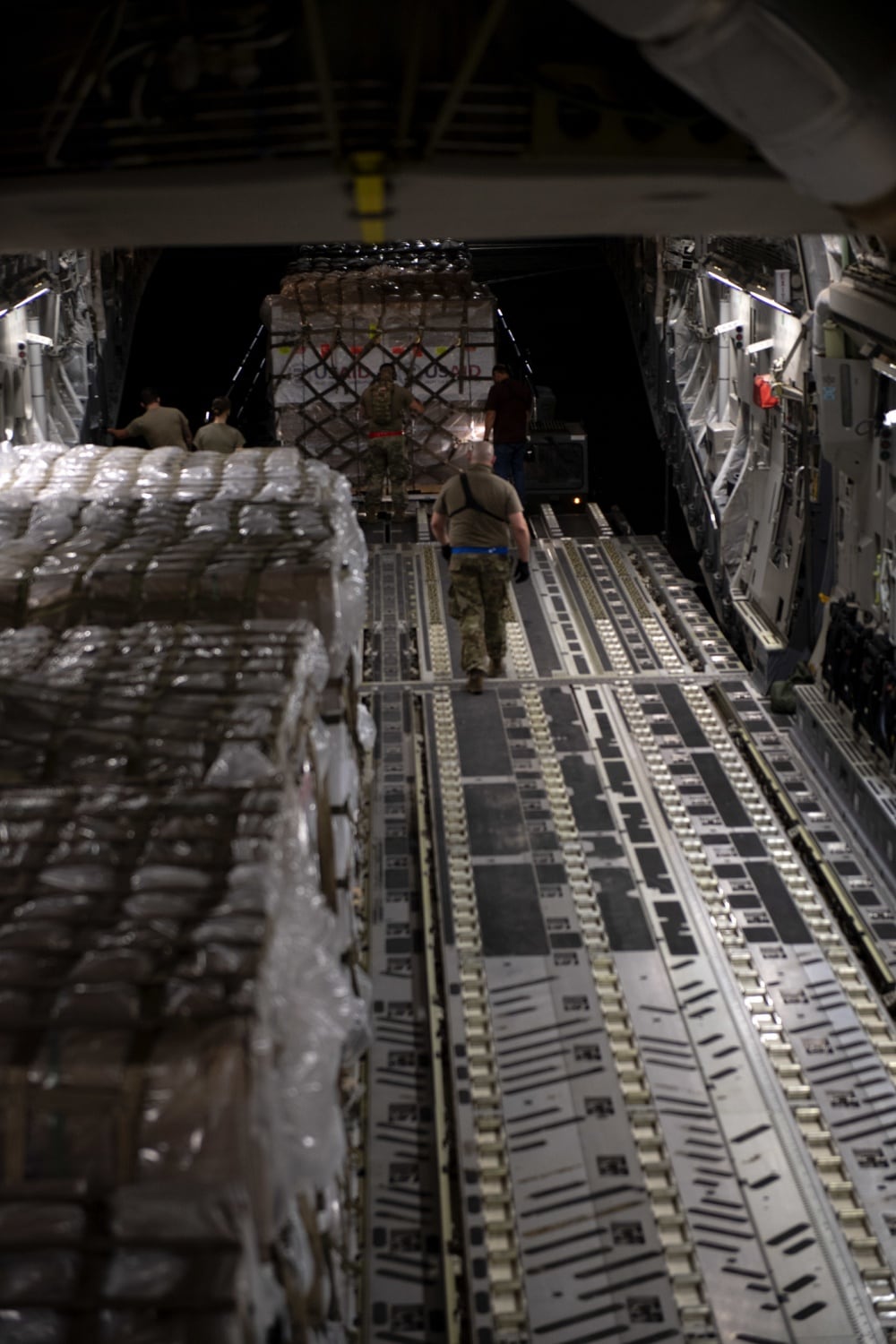As the COVID-19 pandemic continues to kill and sicken people, the U.S. military has stepped up longstanding efforts to provide humanitarian aid and strengthen relationships around the globe.
Using a variety of available funds, U.S. commands have donated millions of dollars in supplies including field hospitals, personal protective equipment, and medical equipment to support the COVID-19 relief and mitigation efforts of partner nations.
SOUTHCOM has already donated two field hospitals to the Dominican Republic and three to Costa Rica, a news release reported in late August. The command plans to donate a total of 24 field hospitals to 11 different countries in South America, Central America and the Caribbean in weeks to come.
Each hospital is capable of accommodating up to 40 patient beds and can be transported to communities most in need. Donations will be dependent on the needs of the host nation, the release reported, but most field hospitals will be equipped with generators and air conditioning equipment.

U.S. Ambassador Sharon Day delivered the three field hospitals donated to Costa Rica, which cost an estimated $1.1 million. Funds came from SOUTHCOM’s Humanitarian Assistance Program, which is used to respond to emergencies as they occur and increase disaster readiness, response, and mitigation capabilities by funding infrastructure, training, and equipment before disaster strikes.
The U.S. government has provided upwards of $135 million in pandemic assistance to regions under SOUTHCOM’s command, according to the August 28 news release.
To date, AFRICOM has supported 37 military hospitals in the country of Ghana, donating medical supplies and two field hospitals to the Ghana Armed Forces.
The command donated another roughly $75,000 in supplies on August 28.
“Ghana is an important U.S. partner in Africa,” said U.S. Army Brig. Gen. Fletcher Washington, AFRICOM deputy director for operations, in a press release. “AFRICOM and the U.S. Embassy are working to support our Ghanaian partners in the fight against COVID-19.”
Among the supplies donated were 10,000 N95 face masks, 1,600 hospital gowns, 2,000 liters of methylated spirit, 3,000 liters of sodium hypochlorite, 20 glucometers, 200 glucometer strips, and 14 pulse oximeters.
In Iraq and Syria, Combined Joint Task Force – Operation Inherent Resolve reported the donation of hygiene and medical supplies in April to support Syrian Democratic Forces guarding 10,000 ISIS detainees across the country’s northeast.

“When we hand off any supplies or equipment to our partners, their capabilities to maintain security and keep populations safe and secure are strengthened,” Lt. Col. Jennifer Smith, director of civil affairs for Special Operations JTF-OIR, said at the time.
CJTF-OIR reported a milestone of $5 billion from the Counter-ISIS Train and Equip Fund divested or obligated to partner security forces in early September. Primarily used to equip forces with equipment, vehicles, weapons, ammunition, and repairs, CTEF funds have also been for COVID mitigation, a press release stated.
It is unclear how much CTEF funding has been used for COVID-19 mitigation or whether donations in April were funded by CTEF, and CTJF-OIR did not immediately respond to requests for comment.
Military personnel have also aided in the transportation and distribution of medical supplies and personal protective equipment funded by other branches of government.
At the direction of President Donald Trump, the U.S. Agency for International Development is sending ventilators to countries around the world, including 1,000 to Indonesia.
USAID partnered with the Defense Department to transport 500 of the ventilators, and an Air Force C-17 Globemaster III from Travis Air Force Base, California departed August 28 to deliver the palletized medical equipment to Jakarta.

“If we can go out there, help people and make them feel appreciated to let them know that America is out there thinking about them and that we desire the best things in their lives, I think that’s going to do a lot more good than we will ever know,” said Maj. Roger Gates, a 21st Airlift Squadron instructor pilot, in a news release. “These 500 may end up (saving) 1,000 or 10,000 people by the time we’re actually able to get a vaccine.”
Because of the military’s unique transportation network, global presence, and specialized personnel, the DoD frequently partners with organizations like the USAID, Red Cross, and FEMA for humanitarian operations, according to a 2019 DoD feature detailing military involvement in humanitarian response.
“There is always a crisis going on,” said Gates. “The Air Force never rests, the military never rests and America never rests. This mission, while it is super impactful to the Indonesian people, is just part of a larger global responsibility that the Air Force acts on because of the American people.”
Harm Venhuizen is an editorial intern at Military Times. He is studying political science and philosophy at Calvin University, where he's also in the Army ROTC program.





